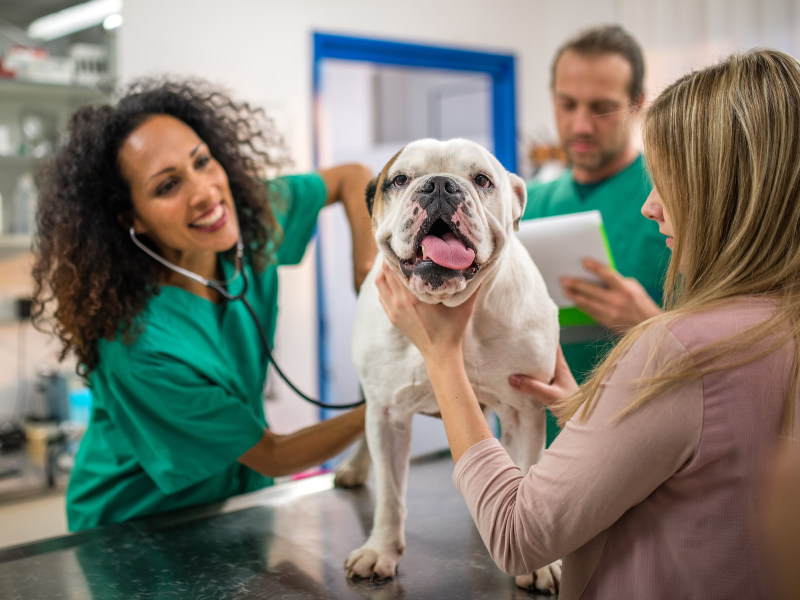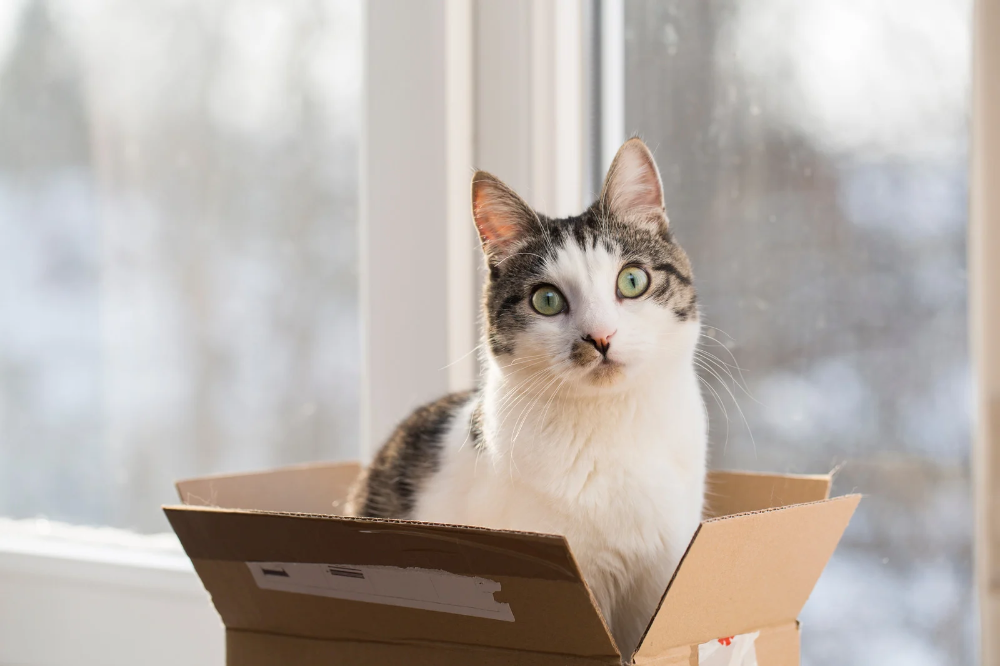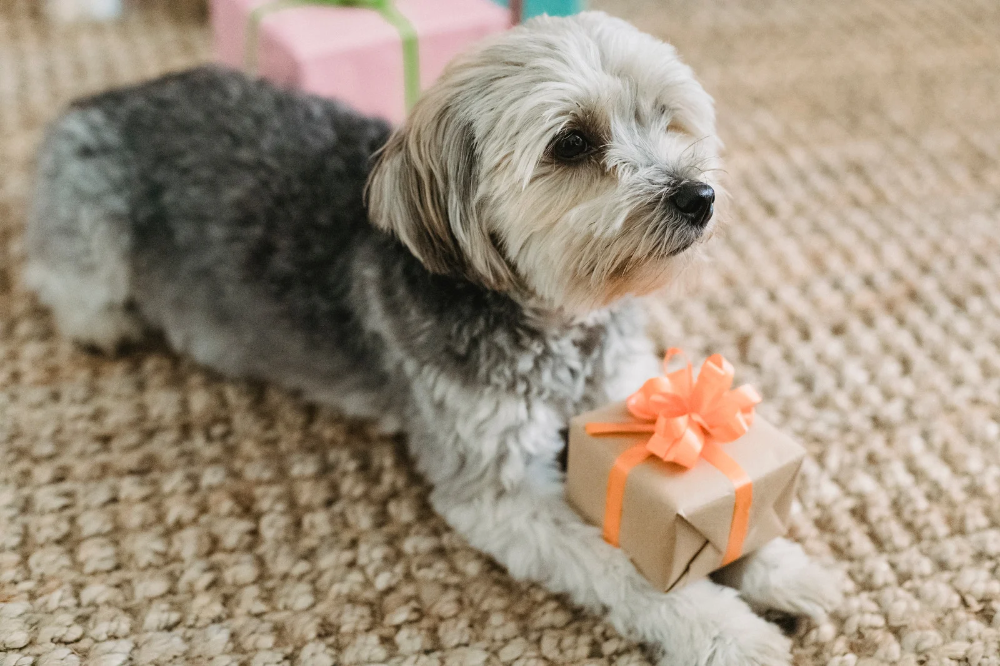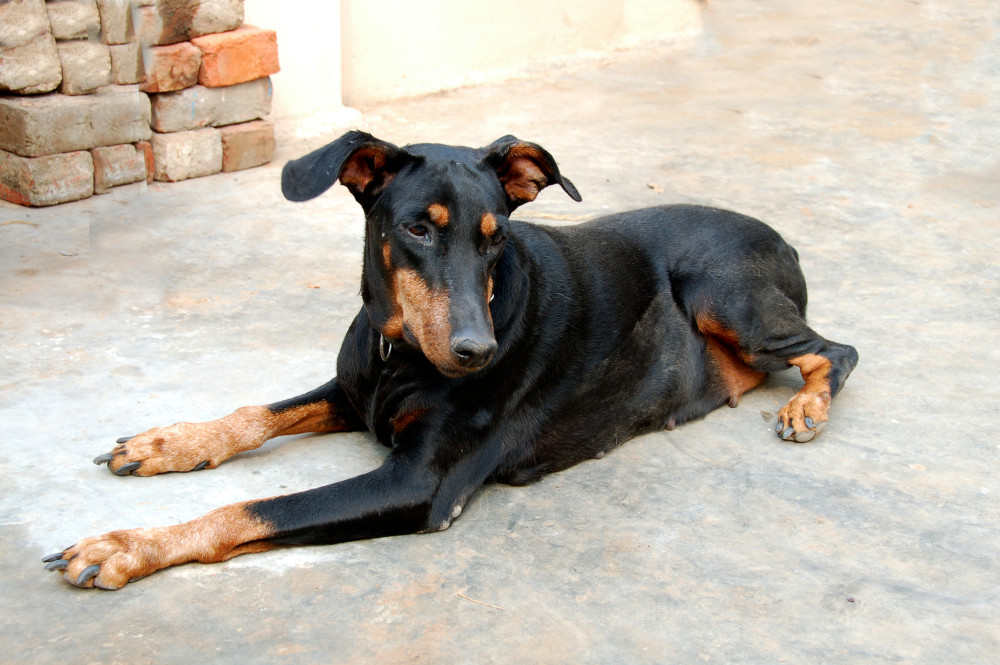
Lists
Top 10 service dogs
Looking for the perfect pup? Take our dog breed selector quiz to find get results based on your lifestyle.
Service dogs give a new meaning to the expression "man's best friend". These highly trained dogs enhance the quality of life for those with disabilities. A service dog is suitable for individuals suffering with mental illnesses, medical conditions, amputees, or people that are wheelchair-bound. Service dogs can learn a variety of tasks depending on their handlers needs. For example, they can load the washing machine, remind their owner to take prescribed medications, assist with mobility, turn lights on, and close the doors. A service dog can be so specialized it can also detect low blood sugar or food allergies, and most importantly, direct help if needed!
Service dogs go with their owner to public places where dogs aren't usually allowed. You will often see these canines in restaurants, shopping centres, movie theaters, and grocery stores. Since service dogs are set in a variety of social situations, a good-natured breed is essential. They must be quiet, calm, focused, and obedient.
With proper certification and training, any breed can become a service dog. But, in reality, not all dogs have the resume to fit the job description. While some may look adorable in photos, they may not be the best suited for the heroic vest and harness. Unlike therapy or emotional support dogs, which are primarily valued for being lovable fluffs, service dogs perform specific jobs. When choosing a breed, it's important to consider their friendliness, temperament, and socialization. If your interested in a pal to lend a helping paw by performing a job for someone in need, read about the Top 10 service dogs breeds below!
Top 10 service dogs

1. Labrador Retrievers
Not only are Labrador Retrievers the most popular breed in the country, this family favourite also makes an excellent service dog. These big, friendly pooches are incredibly smart and trainable, and love to have a job to do! Labs versatility make them suitable to serve nearly every service dog capacity. Most commonly, Labs are assistance dogs for the disabled, sniffer dogs at the airport, and used for search and rescue. Since Labs have "soft mouths", they're especially helpful gripping items for mobility-impaired owners.
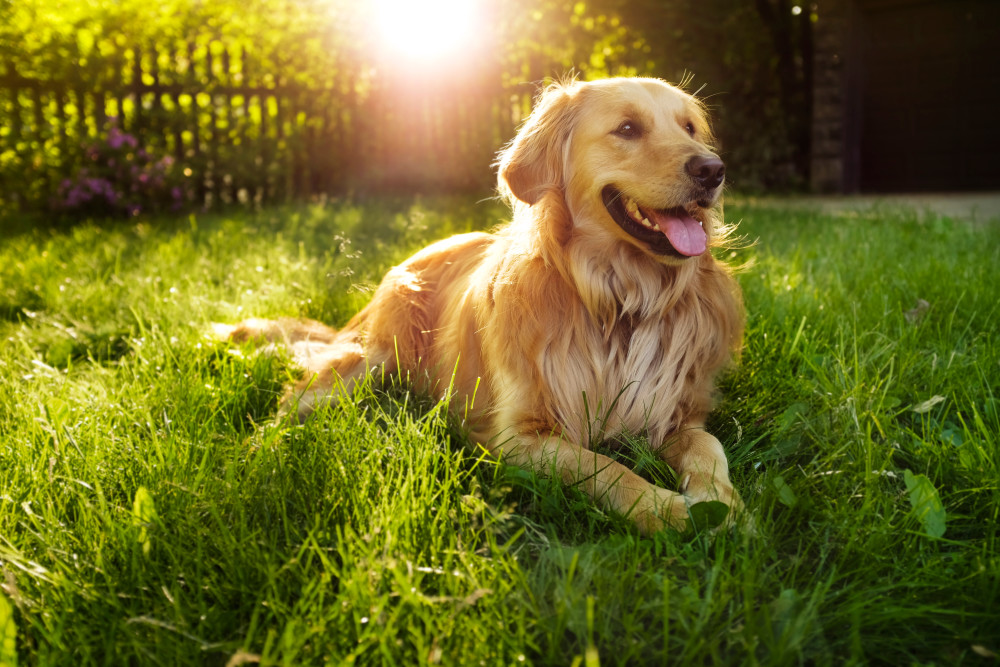
2. Golden Retrievers
The Golden Retriever is a natural when it comes to serving others. Their sensitivity, tender loving care, and friendly nature make them worthy of many roles. Goldens excel at guiding the hearing and visually impaired, as well as those with mobility disabilities. These dogs can also train for search and rescue, PTSD, and fetching items for those confined to wheelchairs. Lovable and golden inside and out, it goes without saying they’re also a natural when it comes to therapy and emotional support.
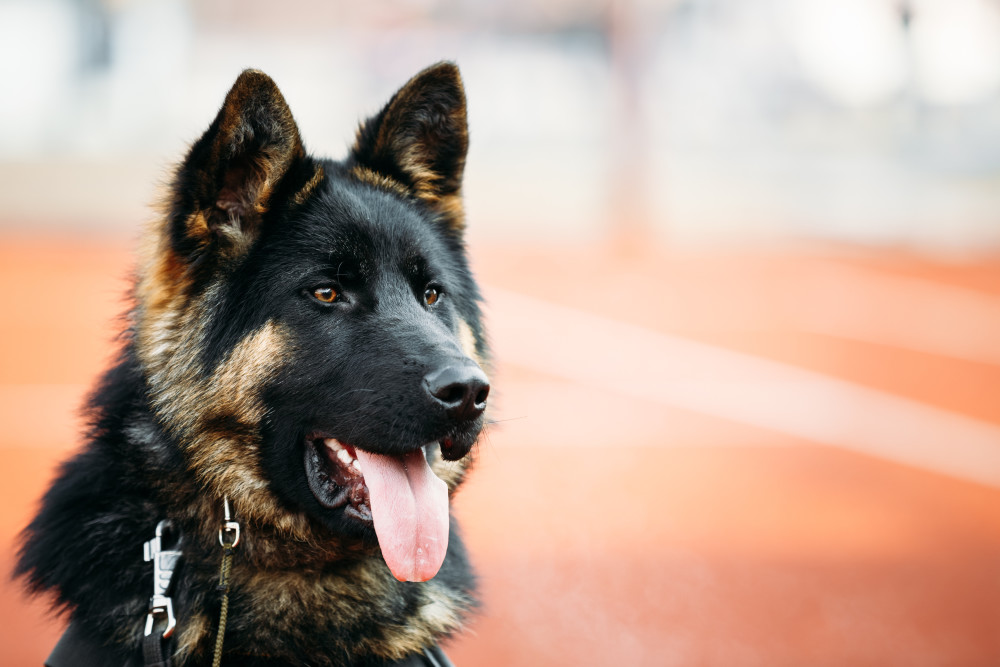
3. German Shepherds
A working German Shepherd is a happy German Shepherd. In fact, it's the most happy when it has a job to do. For this reason, along with it's natural tendency to closely bond with its owner, Germans make an exceptional service dog. Their size and strength is commonly associated with guard and protection. These characteristics also allow them to help the mobility-impaired, as well as handicap. Germans are so alert they are able to notice when someone is feeling anxious or overwhelmed. Lastly, their powerful sense of smell makes them well-suited for monitoring blood sugar levels. This bright and strong breed is one of the best for just about any service job.

4. Poodles
A Poodle is a fan favourite for many reasons. These fluffy friends are sharp with smarts and bountiful with beauty. Not only are they very easy to train, Poodles also have a great demeanour for service work. This breed is a great option for those with allergies due to the hypoallergenic coat. If you are choosing a Poodle for service work, the Standard Poodle is your best bet. The bigger and stronger breed makes an excellent brace and mobility dog. If you don't need a big buddy to help you move around, Toy and Standard Poodles are better in crowded locations. Plus, Poodles look exceptionally great in a service vest!

5. Newfoundlands
You simply can't say enough wonderful things about the Newfoundland! With a heart ten times its size, this big breed makes an excellent service dog. Whether it's providing mobility or emotional support, the Newfoundland is a canine companion you can count on! You will have to get the largest size service dog vest, but they are sure to take pride in their role both on and off duty.

6. Boxers
Intimidating to some, Boxers are also known to be gentle companions. They love to hang with their humans, which make them perfect psychiatric service dogs. Often used as a guard dog, this breed is protective and proactive. Boxers that are properly trained are able to channel their watchdog instincts to attune with their owner's moods and behaviour. Boxers can also learn to assist those with disabilities and retrieve medications.
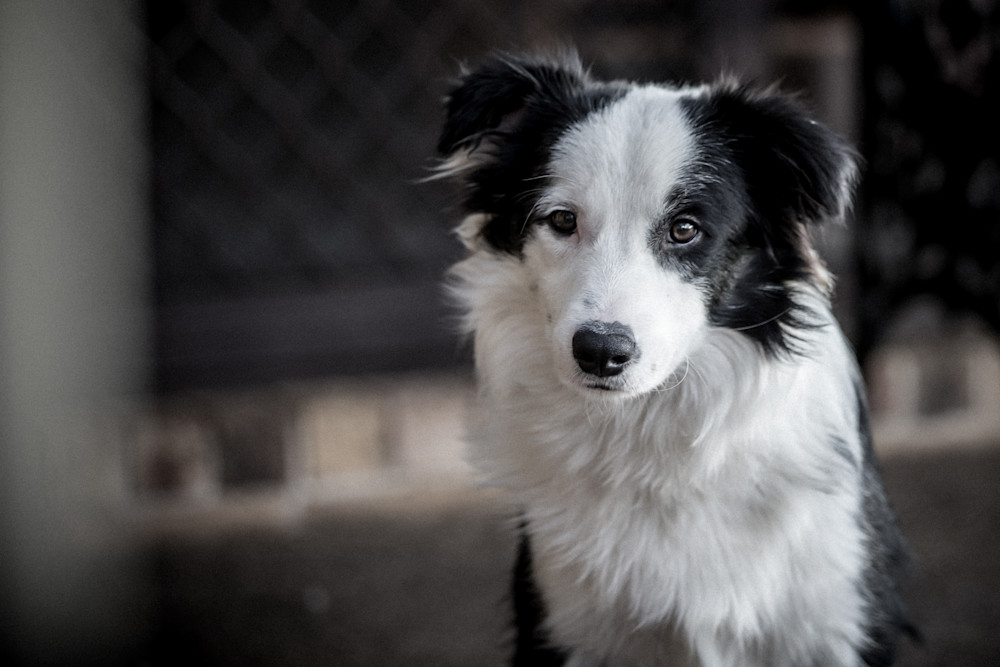
7. Border Collies
A Border Collie pretty much excels at everything it's asked! Often referred to ask the most intelligent dog in the world, it's no surprise the Border Collie is suitable as a service dog. Border Collies are very easy to train and love having a job to do! Because of its herding instincts, this breed is best for search and rescue, seizure alert, PTSD and anxiety.
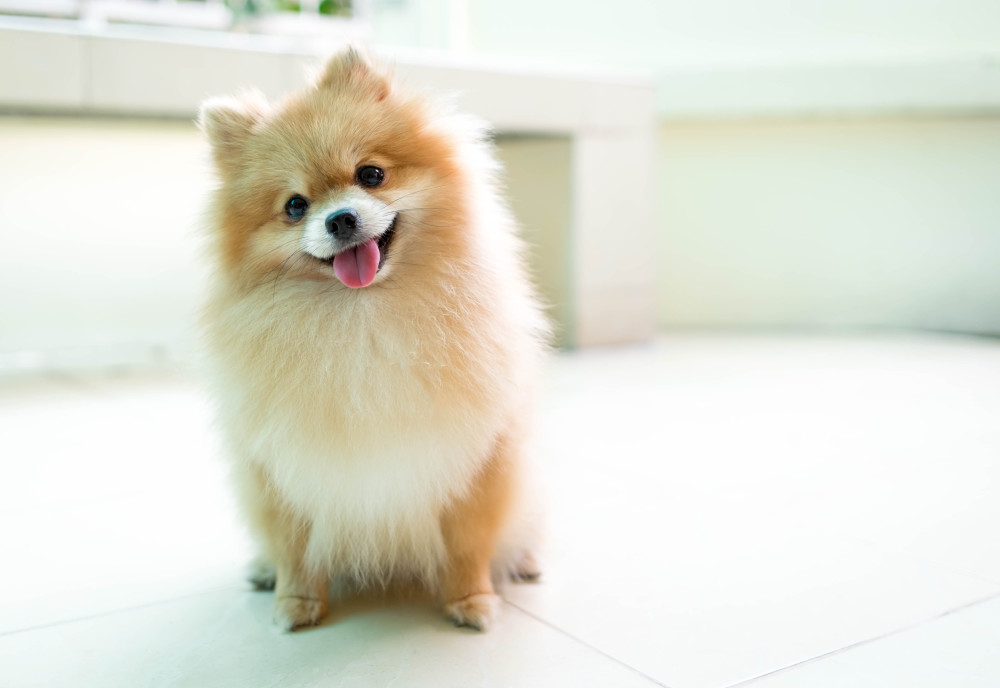
8. Pomeranians
This petite pooch may not be the first breed you imagine when you think of a service dog. Pomeranians are small but mighty, especially when it comes to their bark! This cutie has a natural tendency to alert owners of issues such as low blood sugar or an imminent seizure. Pomeranians aren't going to keep your balance or help you climb the stairs, but they can help with hearing impairments. They can identify their owners of sirens, fire alarms, and door bells! And last but not least, Pomeranians beaming eyes and adorable smile is sure to warm up the coldest of hearts.

9. Bernese Mountain Dog
Service dogs take on all shapes and sizes, and the Bernese Mountain Dog definitely exceeds the standards! This gentle giant is as friendly as they come, making it the perfect pooch to please their owner. Bernese Mountain Dogs check all the boxes! It has a good temperament, impressive intelligence, and strong work ethic. It is large enough to perform physical tasks such as mobility, and smart enough to help their master. Bernese Mountain Dogs excel at providing mobility and emotional support.

10. Doberman Pinschers
This imposing doggy may look like it's all about tough love, but don’t judge a book by its cover. Some people think Dobermans are dangerous, but in reality they are fiercely loyal and affectionate! This breed bonds strongly with their owner, and are sure to always be by your side. They thrive as psychiatric service dogs, particularly those who need reality affirmation. Dobermans learn to use tactile stimulation (licking, nudging) to help those suffering from PTSD or panic attacks. Dobermans are sure to give a sense of safety and security to simple tasks, that may not seem so simple.
National Service Dogs Canada
National Service Dogs Canada is Canada’s premier Service Dog provider. To get more information, please visit: http://www.nsd.on.ca/
Types of Service Dogs
It's a surprise to many that there are different types of service dogs. From walking to hearing to barking, they each have their strong suit. But at the end of the day, there is no universal definition, and a service dog is a service dog. However, breaking down a dog's tasks can help classify what their strengths are! The service dog's type, function, title and classification is ultimately up to their beloved owner.
Types of Service Dogs include:
Autism Service Dogs
Hearing Dogs
Diabetic Alert Dogs
Seizure Detection Dogs
Guide Dogs
Allergy Detection Dogs
Mobility Assistance Dogs
Post Traumatic Stress Disorder
Therapy Dogs
Sight Guide Dogs
Certification and Training
Service dogs come in all shapes and sizes! In fact, there is no legal rule for a service dog to have professional training. A person with a disability has the rights to train his or her own service dog, either with or without a trainer. Canadian Laws require public and privately owned establishments such as restaurants, hotels, airplanes etc. to allow those with disabilities to bring their animal onto business premises. That being said, it is mandatory for a service dog to wear a service vest to be allowed in public places where dogs aren’t usually allowed. You must register it to receive a vest with embroidered Service Dog patch, documentation, certification, plastic wallet card, metal collar tags and a booklet of rules and definitions.
